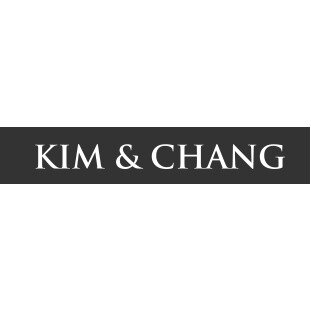Best Funds & Asset Management Lawyers in South Korea
Share your needs with us, get contacted by law firms.
Free. Takes 2 min.
Or refine your search by selecting a city:
List of the best lawyers in South Korea
About Funds & Asset Management Law in South Korea
Funds and asset management law in South Korea governs the creation, operation, and regulation of investment vehicles such as mutual funds, private equity funds, hedge funds, and other collective investment schemes. The market has grown significantly over the past decade, attracting both domestic and international investors. South Korea's legal system provides a robust regulatory framework to ensure investor protection, market transparency, and the stability of the financial sector. The Financial Services Commission (FSC) and Financial Supervisory Service (FSS) are the primary regulatory bodies overseeing funds and asset management activities in Korea.
Why You May Need a Lawyer
Funds and asset management involve intricate legal, regulatory, and compliance matters. Legal counsel is often required in the following situations:
- Establishing mutual funds, private equity funds, or hedge funds in South Korea
- Understanding and complying with local regulatory requirements for fund registration and operation
- Drafting and reviewing fund management agreements and offering documents
- Resolving disputes between investors and fund managers
- Handling cross-border investments and international compliance issues
- Acquiring licenses for asset management business
- Advising on anti-money laundering and investor protection rules
- Managing fund liquidations and restructuring
- Dealing with enforcement actions or investigations by regulators
Given the complexity of relevant laws and potential risks, professional legal advice ensures regulatory compliance and helps mitigate financial and reputational risks.
Local Laws Overview
The legal framework for funds and asset management in South Korea is primarily based on the Financial Investment Services and Capital Markets Act (FSCMA). This law sets out the requirements for the formation and operation of funds, licensing of asset management companies, and protection of investors.
Key aspects include:
- Registration and Reporting: All fund products and asset management companies must be registered with the FSC and adhere to reporting obligations.
- Licensing: Fund managers require specific licenses to legally manage collective investment vehicles.
- Regulatory Oversight: Ongoing regulatory supervision by the FSC and FSS ensures transparency, risk management, and fair dealing.
- Types of Funds: Both public funds (open to retail investors) and private funds (targeting professional investors) are recognized, each with unique regulatory requirements.
- Investment Restrictions: There are detailed rules regarding eligible assets, diversification, leverage, and related-party transactions.
- Disclosure and Reporting: There are strict disclosure obligations to protect investors, including periodic reports on fund performance and activities.
- Anti-Money Laundering: Asset managers must comply with anti-money laundering and anti-terrorism financing laws.
Other relevant laws that may apply include tax regulations, corporate law, and foreign investment restrictions depending on the specifics of the fund or asset management structure.
Frequently Asked Questions
What types of funds are commonly available in South Korea?
Common funds include mutual funds, private equity funds, hedge funds, real estate investment trusts (REITs), and infrastructure funds. Each has different regulatory and investment characteristics.
Who regulates funds and asset management companies in South Korea?
The Financial Services Commission (FSC) and the Financial Supervisory Service (FSS) are the main regulatory bodies overseeing this sector.
Do foreign asset managers need a license to operate in South Korea?
Yes, foreign asset managers must obtain the appropriate licenses if they intend to manage assets or operate funds targeting Korean investors.
Are there restrictions on the types of assets that funds can invest in?
Yes, there are investment restrictions depending on the fund type. These may relate to diversification, concentration limits, leverage, and related party transactions.
How are investors protected in the Korean asset management industry?
Korean laws mandate strict disclosure requirements, fund governance standards, and regular reporting to safeguard investor interests.
What disclosures are fund managers required to provide?
Fund managers must disclose key information such as investment objectives, strategies, risks, past performance, and fees both before investment and on a regular basis afterwards.
Is there a minimum capital requirement for setting up an asset management company?
Yes, minimum capital or net asset requirements apply and vary depending on the type of asset management business.
What tax implications do investors face with Korean funds?
Taxation depends on the fund structure, investor type, and jurisdiction. Investors may face withholding taxes or capital gains taxes. Specialized legal and tax advice may be necessary.
How are disputes between investors and fund managers resolved?
Disputes can be resolved through negotiations, mediation, arbitration, or litigation in Korean courts, depending on the contract and severity of the issue.
What is the process for liquidating a fund in South Korea?
Fund liquidation is subject to the FSCMA and involves notifying investors, settling liabilities, realizing assets, and distributing proceeds under regulatory supervision.
Additional Resources
If you need more information or assistance, the following resources and organizations may be helpful:
- Financial Services Commission (FSC) - The top regulatory authority for financial investments
- Financial Supervisory Service (FSS) - Responsible for the direct supervision of financial markets
- Ministry of Economy and Finance - For tax and financial policy information
- Korea Financial Investment Association (KOFIA) - Self-regulatory organization for investment firms and market participants
- Korean Bar Association - For finding qualified legal professionals specializing in funds and asset management
Next Steps
If you require legal assistance with funds and asset management in South Korea, consider the following actions:
- Gather and organize detailed information about your specific needs and objectives
- Identify potential legal issues relevant to your situation, such as licensing, fund structure, investor eligibility, or compliance concerns
- Contact a legal professional or law firm with expertise in Korean financial laws and regulations
- Prepare questions and documentation for your initial consultation to ensure you receive tailored advice
- Stay informed about changes in laws and regulations that may impact your funds or asset management activities
A knowledgeable lawyer can help navigate complex regulations, draft essential documents, advise on regulatory compliance, and represent your interests before regulators or in court if necessary.
Lawzana helps you find the best lawyers and law firms in South Korea through a curated and pre-screened list of qualified legal professionals. Our platform offers rankings and detailed profiles of attorneys and law firms, allowing you to compare based on practice areas, including Funds & Asset Management, experience, and client feedback.
Each profile includes a description of the firm's areas of practice, client reviews, team members and partners, year of establishment, spoken languages, office locations, contact information, social media presence, and any published articles or resources. Most firms on our platform speak English and are experienced in both local and international legal matters.
Get a quote from top-rated law firms in South Korea — quickly, securely, and without unnecessary hassle.
Disclaimer:
The information provided on this page is for general informational purposes only and does not constitute legal advice. While we strive to ensure the accuracy and relevance of the content, legal information may change over time, and interpretations of the law can vary. You should always consult with a qualified legal professional for advice specific to your situation.
We disclaim all liability for actions taken or not taken based on the content of this page. If you believe any information is incorrect or outdated, please contact us, and we will review and update it where appropriate.
Browse funds & asset management law firms by city in South Korea
Refine your search by selecting a city.















